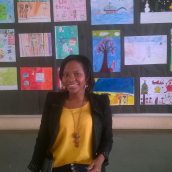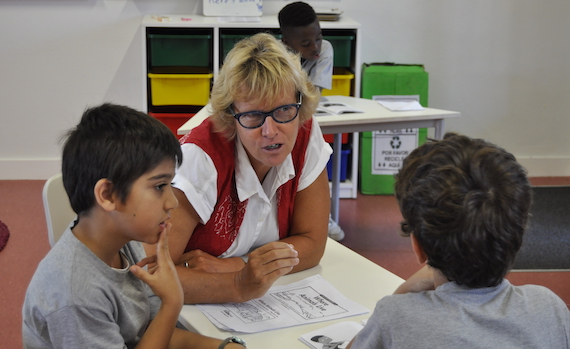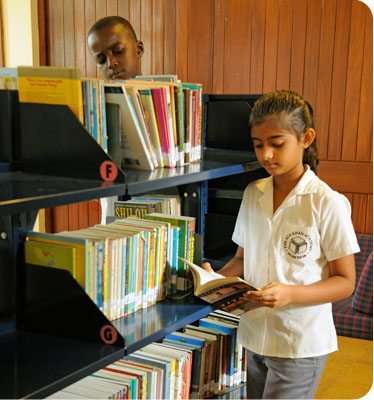Maria Atalia Matola: Exuding passion in her profession
From early on in her career, Atalia exhibited qualities of perseverance and courage toward achieving her dreams and receiving an education. Despite initially facing challenges in her plans to attend university, Atalia remained strong-willed and pursued her studies in teaching English at a teacher’s college in Maputo. The one-year intensive programme rewarded her with a teaching qualification for students from Grades 1–7 and ultimately, entrance into a university programme for English language teaching, which qualified her to teach at the secondary level as well. “After that one-year course, I realised that I really love teaching. When I get to the classroom it’s as if I’m connected to a socket. It just comes naturally – my communication with the students and delivery of the lessons,” she claims. Atalia taught for four years in both private and public schools before coming to the Academy.
During her programme at the teacher's college, she had the experience of teaching English to adults and was able to gain many skills, which she built upon and adapted during her time in Mombasa. She continues to search for new experiences and enjoys being stretched out of her comfort zone. As she has taught younger students and adults, she says, “I would like to challenge myself and teach teenagers.”
With bravery and a determined mindset, Atalia embraced the opportunity to teach at the Academy in Mombasa. Previously, Atalia was teaching at the Matolajhota school in Maputo, and frequently attended the Professional Development Centre (PDC) training and development sessions at the Aga Khan Academy Maputo, which is where she learned about the TPP. After a rigorous selection process, she was one of six individuals who were chosen to participate in the TPP.
Atalia experienced culture shock when transitioning from Maputo to Mombasa. The dressing style, the hospitality, the dominant religions and the culture are all very different from her hometown. She began to appreciate the cultural nuances and slowly adapted to the different social and cultural environments of the city, including the language. “I came to Mombasa thinking I have to work on improving my English, but I’ve also started learning Kiswahili!”
Not only was she exposed to a new culture and belief system, but Atalia also reflects upon the many lessons and skills she learned whilst in the classroom. She is always willing to grow, learn and unlearn, all in a bid to further develop her mindset and philosophy of teaching. “There are so many things that I learned here that I’m going to take in my luggage to Maputo…[especially] the inquiry-based learning, because here in the IB curriculum the student is at the centre of the learning, it’s not the teacher.” Atalia also feels that the collaborative learning approaches and the integration of the Aga Khan Academies' (AKA) Learner Profile attributes within the classroom make a large impact on the development of the child. “It makes a lot of difference…the way the students behave inside and outside the classroom really mirrors the AKA LearnerProfile.” She emphasises, “No doubt [my experience at the Academy] has made me a more effective teacher.”
Atalia has returned to Mozambique to teach at AKA Maputo. The language of instruction in Mozambique is normally Portuguese, but the Academy implements a dual-language approach and teaches in both English and Portuguese to ensure that students are fluent in both English, which is taught across the Academies network, and the language spoken in their national context. “I’m really passionate about English,” says Atalia. Many students entering Grade 1 at the Academy speak little to no English, which can make teaching in English challenging. “The main language of instruction will be English, but we’ll have Portuguese as a scaffolding language for students who don’t understand English well,” she notes.
Atalia speaks about the need for a teacher to develop a relationship with the students that goes beyond conveying information. “To be an IB teacher, you need to be someone who is passionate about your profession. You have to play so many roles apart from being a teacher…You need to be someone who is aware of the life of the student… so that you can properly guide the student.”
Having grown up in Mozambique, Atalia is looking forward to teaching at AKA Maputo, which is currently expanding its physical campus and its curricular offering to include the IB Middle Years Programme. Atalia and the other TPP graduates from her cohort will have the opportunity to bring their newly wrought skills to bear on helping to grow the school. She is embracing the challenge of nurturing the next generation of students. One of the most memorable moments of her earlier time as a teacher in Maputo was teaching young students who didn’t yet know the alphabet how to read. “It was a great moment for me to see those students opening their books and reading, joining words together, making a sentence, counting…It really touched my heart.”
Atalia has learned a great deal through the TPP but is looking forward to continuing her growth as a teacher. She says, “This course has changed me totally, no doubt. But I still want to learn more – there are so many things that are still in my mind and that I want to know how to implement. I will still learn.” Atalia also hopes to work with the PDC at AKA Maputo and share her experiences with the next cohort of teachers engaging in the TPP.
By: Karishma Bhagani and Sarra Sheikh
Maike Silver: Cultivating Young Minds to Truly Make a Difference
Ask Maike Silver, Junior School Principal at the Aga Khan Academy in Maputo, Mozambique, what attracted her to teach at the Academy.
“The vision and mission of the Academy,” she states simply. “The vision to inspire young people into becoming future leaders of their countries. To actually have the ethical persuasion to make a difference in the lives of their countrymen.”
Originally from Germany, Maike says it was her father’s voluntary work in her hometown that swayed her into the teaching profession. “I was 12 years old when I started helping my dad coach young swimmers at our local hometown club. Ever since then, I have wanted to work with children and young people.”
Starting her teaching career at a German-American International School in California as an Early Years Specialist, Maike worked for 17 years, before embarking on her international educator journey, first to Cebu, Philippines, and then onto Maputo, Mozambique. She started working at AKA Maputo in 2018.
While she applauds the International Baccalaureate (IB) framework the Academy uses to guide teaching and learning, Maike also values the Aga Khan Curricular Strands of ethics, pluralism, economics for development, cultures, governance, and civil society. These play an important role in her instruction.
“It is these added leadership and stewardship attributes that empower students to care for their communities and that also provide a concentrated focus on local issues,” she states with conviction.
One of Maike’s main goals is to create an environment in which learning can be a positive and transformative experience and make a meaningful impact on students. Aware that young people flourish academically and emotionally in a constructive environment, Maike goes to great lengths to demand discipline for behaviours that maintain reverence and a sense of community and family in which every student feels valued. She feels strong peer relationships are important as are mutual trust and respect between students and between students and teachers.
“In order to be a great teacher several factors need to be in place,” Maike says with authority. “The classroom environment needs to be one of mutual respect where teachers and students connect and together create expectations for behaviour that uphold dignity, and a sense of caring for each other and a passion for learning,” she states solemnly.
In her opinion, teaching is one of the hardest and yet one of the most rewarding professions. “Being a teacher is a difficult occupation as it requires a tremendous amount of energy to keep children engaged in their learning as well as show compassion for all categories of different learners. The job entails diplomacy and resilience when dealing with the different demands from parents, students and administrators.”
Aware of the importance of being prepared before teaching a class, Maike states emphatically that a teacher needs to plan activities and strategies with a strong sense of commitment in order to inspire students.
“The teacher needs to plan engaging activities that have a clear sense of purpose and where the outcome can be assessed. At the same time, the teacher needs to be responsive to the needs of students and must be flexible in their planning. This requires a teacher to be open-minded and reflective,” she notes.
If Maike carries a sense of manifest destiny for her students, she credits the Academy’s IB curriculum of a holistic education. Saying it is critical for educators to train students to think critically and creatively, and to be able to transfer their knowledge to real-life situations, she quotes Ernest LeRoy Boyer, who was a distinguished American educator, who once said “To be truly educated, a student must …make connections across the disciplines, discover ways to integrate subjects and ultimately relate what they learn to life."
Maike has savored every moment of being part of the AKA Maputo family. “I feel it is a tremendous honour and responsibility to be part of creating sustainable systems for a newly-developing Academy. I hope to leave behind a legacy of having been a kind, compassionate and effective leader who played an essential part in providing our young leaders of the future with the highest quality of education that prepares them to enact positive change in the world they inhabit.”
Written by Perviz Walji
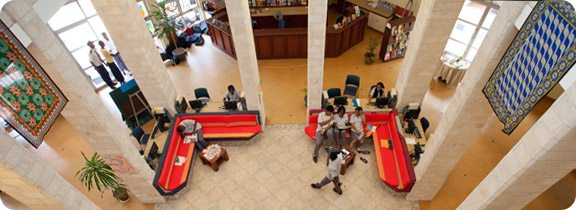
News
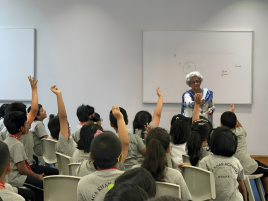
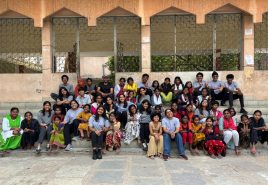


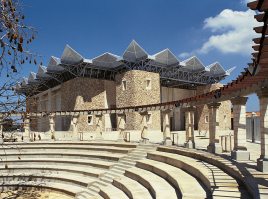
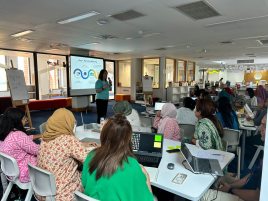
Pages
News






Pages
News






Pages
PLES graduation ceremony - 10:30am, Tuesday 12th December
32 government school teachers will receive certification for completing the 3-tiered PLES programme in English language acquisition and pedagogy.
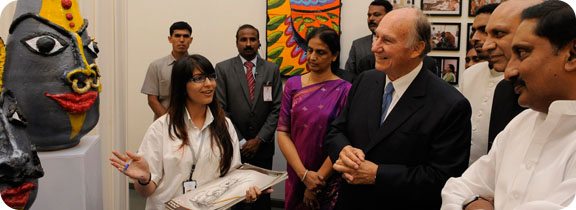
Vision
The outlook and educational perspectives of the Aga Khan Academies are based on the vision of His Highness the Aga Khan. His vision looks to education of the highest quality that can prepare young people to lead and enact positive change in the world they inhabit.
The text below, drawn from the Foreword to Excellence in Education (Aga Khan Academies, 2003), outlines the vision of His Highness for the Aga Khan Academies.
A time of change
"We live in a time of rapid change — change that is often unpredictable and not always positive. My experience with development, as an observer and a practitioner, has led me to the conclusion that the best way to manage change, whether positive or negative, is to prepare for it and that there is no greater form of preparation for change than investments in education. These investments must focus, of course, on teachers of the highest quality — teachers who are creative and committed to their own life-long learning and self-improvement. It also means investments in facilities that provide an environment conducive to the less tangible but equally important elements of an education — self-esteem, leadership, tolerance, ethical judgment and moral reasoning."
What does it mean to be educated?
“However, as educators and parents have begun to make these investments, they are revisiting the age-old question: What does it mean to be an educated person? Many have come to realise that education must prepare students not only for the job market, but also for life.
From Zanzibar's madrassas to Britain's public schools, from American university preparatory academies to government schools in Pakistan, there is a realisation that education must equip students with more than a narrowly focused curriculum based on reading, writing and mathematics. It must expose students to a broad and meaningful study of the humanities, including science, music and art. The teaching of history and world civilisations must be more broadly representative of the world's entire heritage than it has in the past. This is especially true in regard to Islamic civilisations, which have been misrepresented or ignored despite their vital contributions in a wide range of spheres, from science to architecture.
Education must include mastery of more than one language and an ability to communicate effectively in those languages. In the face of the most rapid advances in technology in history, education also must teach students how to master information technologies. These skills now form a critical part of the learning process, as well as essential qualifications for application in the workplace, but even these elements are not enough."
Preparing children for life
“An education must equip students with the tools that enable them to adapt and thrive, in a world characterised by change. In such an environment, technical proficiency is not enough. Education that prepares children for life must go beyond fundamental skills to stimulate creativity, intellectual curiosity and honest inquiry. Advancement and development, both personal and societal, are dependant on these elements. Innovation and progress arise from the ability to approach a challenge in a new way and offer a solution."
A pluralistic outlook
“Education must also make the case for a pluralistic tradition in which other views, ethnicities, religions and perspectives are valued not only because that is just and good, but also because pluralism is the climate best suited for creativity, curiosity and inquiry to thrive. It must also stimulate students to consider a variety of perspectives on some of the fundamental questions posed by the human condition: 'What is truth?' 'What is reality?' and 'What are my duties to my fellow man, to my country and to God?' At the same time, education must reinforce the foundations of identity in such a way as to reinvigorate and strengthen them so that they can withstand the shock of change."
The most important measure of an education
“What students know is therefore no longer the most important measure of an education. The true test is the ability of students and graduates to engage with what they do not know and to work out a solution. They must also be able to reach conclusions that constitute the basis for informed judgements. The ability to make judgements that are grounded in solid information and employ careful analysis, should be one of the most important goals for any educational endeavour. As students develop this capability, they can begin to grapple with the most important and difficult step: to learn to place such judgements in an ethical framework.
“For all these reasons, there is no better investment that individuals, parents and the nation can make than an investment in education of the highest possible quality. Such investments are reflected and endure, in the formation of the kind of social conscience that our world so desperately needs."
His Highness the Aga Khan
Access the biography of His Highness the Aga Khan on the Aga Khan Development Network website.
PYP and MYP Parent Teacher Conferences
AKA Maputo will host Parent Teacher Conferences for its Primary Years Programme students from 7 - 10 December. Middle Years Programme students in Grade 6 and 7 will have their Parent Teacher Conferences on 14 December. Please book your appointment via email or ManageBac.
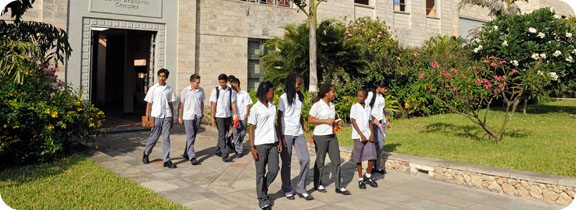
Introduction to the Aga Khan Academies
In 2000, His Highness the Aga Khan initiated the establishment of the Aga Khan Academies, an integrated network of schools to be located in countries across Africa, South and Central Asia, and the Middle East.
The aim of the Academies is to develop future leaders with the skills and knowledge to support positive development in their societies. The Academies achieve this by recruiting exceptional young people from all backgrounds and providing them with the highest international standard of education.
Admission is based upon merit, with financial aid available to ensure access for accepted students regardless of financial circumstances.
Global network
When complete, the network of Academies will form a global learning community of about 18 schools in 14 countries (view a map). They will eventually serve approximately 14,000 girls and boys of exceptional calibre, graduating 1,500 students annually.
The first Aga Khan Academy opened in Mombasa, Kenya in 2003, the second in Hyderabad, India in 2011 and the third in Maputo, Mozambique in 2013.
Rigorous academic programme
The academic programme offered by the Academies has been developed according to the principles of the widely-recognised International Baccalaureate (IB). The IB provides a challenging academic environment for students and allows their achievement to be measured against international standards.
In addition to providing a rigorous academic and leadership experience, the Academies help students develop an ethical and public-minded outlook through community service opportunities and education on ethics and pluralism.
“An education must equip students with the tools that enable them to adapt and thrive in a world characterised by change.”They also recognise that to become effective leaders, students must be both globally minded and locally rooted. Global as well as local perpectives are reflected in the curriculum, and students study in both English and the local language.
Purpose-built residential campuses
Each Aga Khan Academy campus is architect designed and purpose built. They feature state-of-the-art classrooms and resource areas, and extensive sports facilities.
The residences provide secure and well-supervised accommodation for local and international students as well as those visiting from another Academy. As the network develops further, both students and teachers will participate in visits and exchanges between Academies to broaden their experience and practical understanding of pluralism.
Professional development
Promoting excellence in teaching, both on campus and more broadly, is a major goal of the Academies. Each Academy is established as a Professional Development Centre (PDC). The PDC aims at strengthening the profession of teaching in the region by providing substantial professional learning opportunities and modelling highly effective educational practice.

